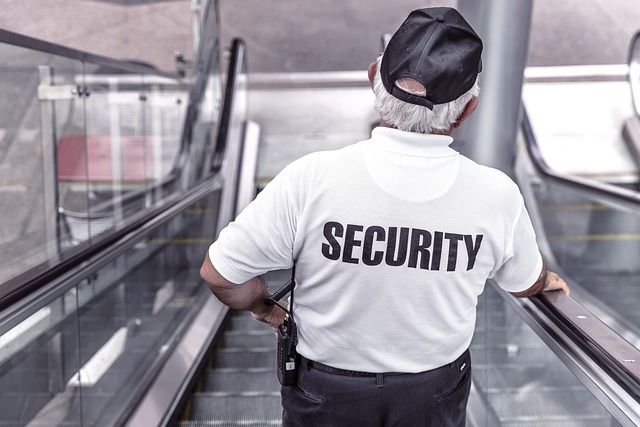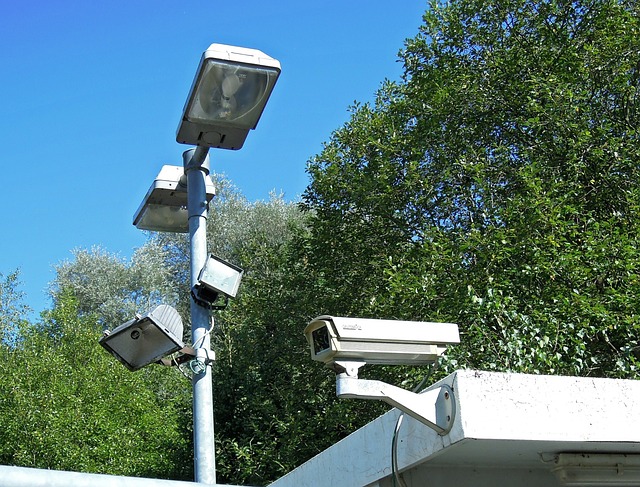Community security is a collaborative effort among residents, organizations, and law enforcement to enhance neighborhood safety and well-being. Key initiatives include local surveillance programs, group security networks (like community watch programs), open communication, and shared responsibility. These strategies empower residents through local surveillance and group security, fostering an early warning system for threats, building trust, and strengthening overall area security. A robust Community Watch program, with organized patrols, training, and neighborhood meetings, is a powerful security initiative that deters crime and enhances public safety by leveraging the collective power of residents.
In today’s world, community security is paramount for fostering a safe and supportive neighborhood. This article delves into essential strategies to enhance neighborhood safety and promote public safety. From understanding the cornerstone of community security to empowering residents through local surveillance and group security initiatives, we explore building an effective community watch program. Additionally, we highlight the profound impact of security initiatives in strengthening local communities and provide practical tips for enhancing neighborhood safety.
- Understanding Community Security: The Cornerstone of Neighborhood Safety
- Empowering Residents: Local Surveillance and Group Security Strategies
- Building a Community Watch Program: Fostering Public Safety Together
- The Role of Security Initiatives in Strengthening Local Communities
- Practical Tips for Enhancing Neighborhood Safety and Promoting Awareness
Understanding Community Security: The Cornerstone of Neighborhood Safety

In the realm of public safety, community security stands as a cornerstone for fostering neighborhood safety and well-being. It involves the collective efforts of residents, local organizations, and law enforcement to create a secure and harmonious environment. By implementing various security initiatives, such as local surveillance programs, group security networks, and active community watch programs, neighbors can actively contribute to their own protection and that of their community.
Understanding community security is crucial for empowering locals to take charge of their public safety. This includes being vigilant, informed, and proactive in identifying potential risks and threats. Through open communication, collaboration, and a shared sense of responsibility, communities can create robust security measures, enhancing the quality of life and ensuring peace of mind for all residents.
Empowering Residents: Local Surveillance and Group Security Strategies

Empowering residents through local surveillance and group security strategies is a key component of enhancing neighborhood safety. By fostering a sense of community involvement, neighbors can become active participants in maintaining public safety. Community Watch programs encourage residents to be vigilant and aware of any suspicious activities, creating an early warning system for potential threats. This collective effort not only strengthens the overall security of the area but also builds trust among neighbors, transforming the neighborhood into a safer and more cohesive unit.
Group security initiatives can take various forms, such as neighborhood meetings, where residents discuss local concerns, share information, and plan collaborative actions. Local surveillance techniques, including community-led patrols or the use of technology for monitoring, enable quick response to emerging issues. These strategies empower individuals to take charge of their surroundings, ensuring that every member of the community feels secure and supported in their efforts to enhance neighborhood safety.
Building a Community Watch Program: Fostering Public Safety Together

Building a robust Community Watch program is a powerful initiative to enhance neighborhood safety and promote public safety. It leverages the collective power of residents, who become active participants in local surveillance and vigilance. By organizing and training individuals within the community, neighbors can effectively monitor their surroundings, report suspicious activities, and collaborate on security strategies. This collaborative approach not only strengthens group security but also fosters a sense of unity and empowerment among residents.
A well-structured community watch program encourages open communication channels, where citizens can share information, organize neighborhood patrols, and participate in community meetings dedicated to discussing security concerns. This collective involvement ensures that any potential threats or criminal activities are promptly addressed, enhancing the overall community security. It also serves as a deterrent to crime, as criminals tend to avoid areas with vigilant and engaged communities.
The Role of Security Initiatives in Strengthening Local Communities

Security initiatives play a pivotal role in fostering robust and resilient local communities. By implementing neighborhood safety programs, such as community watch groups and public safety campaigns, residents take an active role in ensuring their own security and that of their surroundings. These collaborative efforts not only enhance neighborhood surveillance but also build a sense of collective responsibility.
Local surveillance methods, when executed within the context of community security initiatives, can serve as powerful tools for maintaining peace and order. Group security measures encourage neighbors to communicate, share information, and work together to identify potential threats. This collective vigilance strengthens the social fabric, fostering an environment where everyone feels safe and supported. As a result, communities become better equipped to handle emergencies, prevent crimes, and create a thriving, secure space for all residents.
Practical Tips for Enhancing Neighborhood Safety and Promoting Awareness

In every community, there lies a collective responsibility to ensure the safety and well-being of its members. Enhancing neighborhood safety goes beyond individual precautions; it requires a collaborative effort to build a robust community security framework. A simple yet effective step is to foster a community watch program where neighbors keep an eye out for each other’s well-being. This can be facilitated through regular meetings and communication channels, ensuring everyone is aware of potential risks and suspicious activities. Additionally, group security initiatives like creating neighborhood patrol teams or installing local surveillance systems can significantly deter crime and promote public safety.
Promoting awareness is another crucial aspect of these security initiatives. Educating residents about common scams, fraudulent activities, and personal safety measures can empower them to protect themselves and their property. Community events focused on neighborhood safety can serve as a platform to share knowledge, build trust, and encourage collaboration. Moreover, leveraging local resources like law enforcement agencies and community centers to spread information about security best practices can create a more informed and resilient neighborhood, ultimately strengthening the community security fabric.
By empowering residents through local surveillance, group security strategies, and community watch programs, we can create a culture of neighborhood safety and public awareness. Security initiatives play a vital role in strengthening local communities by fostering trust, collaboration, and resilience. Through practical tips and collective effort, every member of the community can contribute to enhancing neighborhood safety and promoting a sense of security for all. Together, we can build safer and more cohesive neighborhoods where everyone feels valued and protected.
